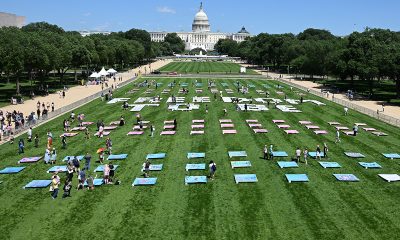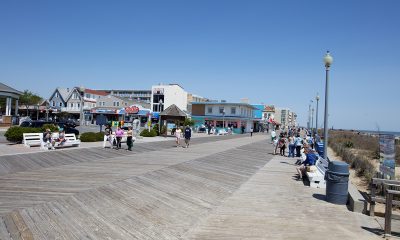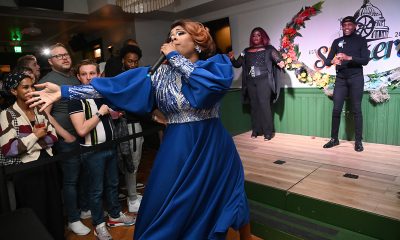Local
Historians shift conference to Baltimore in protest of N.C. law
Mayor Pugh to retain travel ban policy
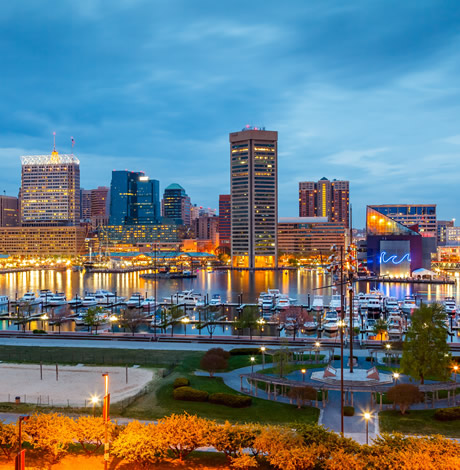

The Business History Conference has been moved from Charlotte, N.C. to Baltimore over anti-LGBT law.
As part of a growing boycott of North Carolina as a result of the state’s anti-LGBT law HB2, the Business History Conference scheduled for 2018 will move from Charlotte, N.C., to Baltimore. The historians study the history of businesses and their role in society.
The Business History Conference is expected to bring 350 guests and $120,000 in spending to Baltimore, said Roger Horowitz, the group’s secretary-treasurer, according to the Baltimore Sun.
Baltimore’s previous mayor Stephanie Rawlings-Blake had banned official state travel to North Carolina because of HB2, and the Sun reported that new Mayor Catherine Pugh will continue that policy.
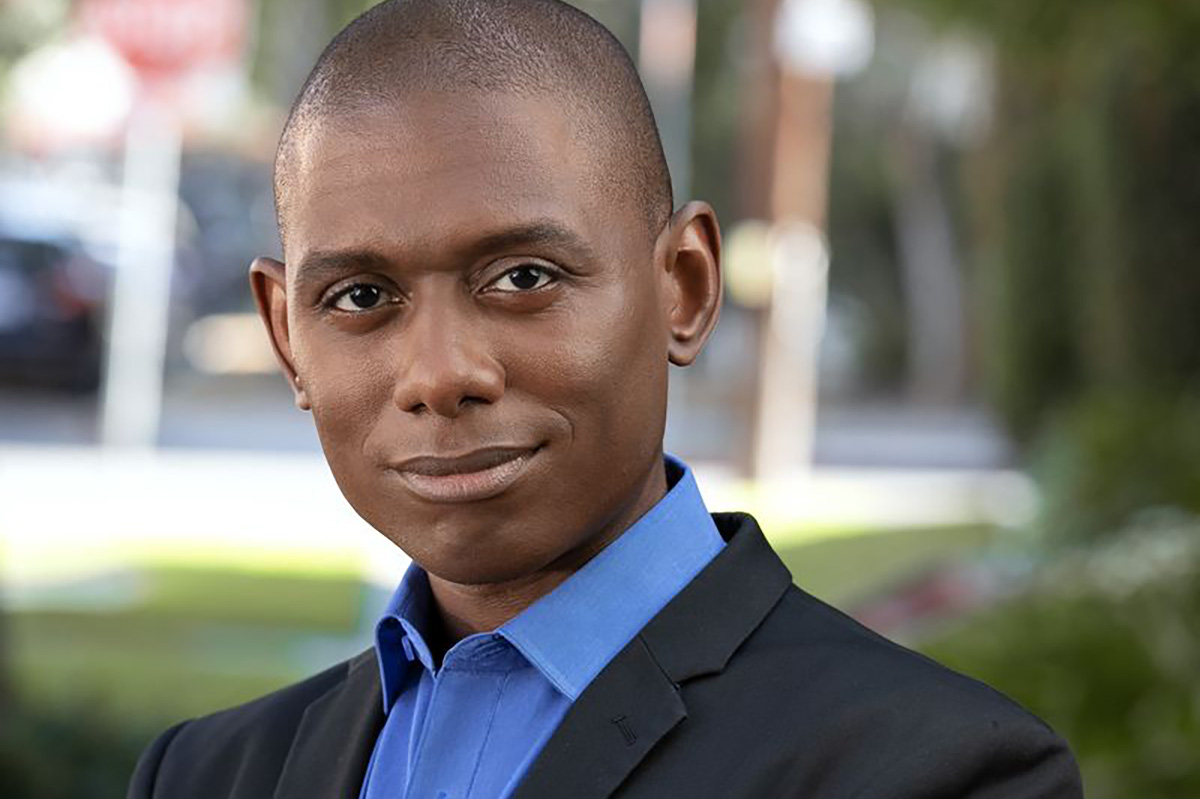
The Comings & Goings column is about sharing the professional successes of our community. We want to recognize those landing new jobs, new clients for their business, joining boards of organizations and other achievements. Please share your successes with us at [email protected].
The Comings & Goings column also invites LGBTQ+ college students to share their successes with us. If you have been elected to a student government position, gotten an exciting internship, or are graduating and beginning your career with a great job, let us know so we can share your success.
Congratulations to David Mack onbeing named the inaugural executive director of the IN series. On accepting the position Mack said, “I’m excited to join the D.C. community as IN Series’ inaugural executive director as the company enters its adventurous next chapter. I’m eager to meet audiences across the Baltimore and Washington, D.C. area in order to help expand access to innovative opera — whether they’re longtime enthusiasts or discovering it for the first time. Thank you … to the IN Series hiring committee for inviting me into your world with open arms, and such generosity of spirit.”
Mack is a seasoned arts executive and producer, with more than 15 years of leadership experience in innovative performing arts organizations, including the African American Art &Culture Complex; Joe Goode Performance Group; and Invertigo Dance Theatre. As a strategic arts consultant, his clients have included LA Dance Project, Diavolo, Architecture in Motion, and Center Theatre Group. As general manager of The Industry, he produced Invisible Cities at LA’s Union Station in collaboration with the LA County Metropolitan Transportation Authority.
Mack has served on the boards of the LA Producer’s League, Western Arts Alliance, and Creative West, and advocated on behalf of artists as a member of the SF Arts Alliance, and Greater Bay Area Arts Coalition. Mack was co-founder of Theatre Magnet, Artist Magnet and Artist Magnet Justice Alliance, a series of Oakland-based arts service and consulting organizations. He is currently a DeVos Institute of Arts & Nonprofit Management Global Executive fellow. He earned his master’s in theater at the California Institute of the Arts.
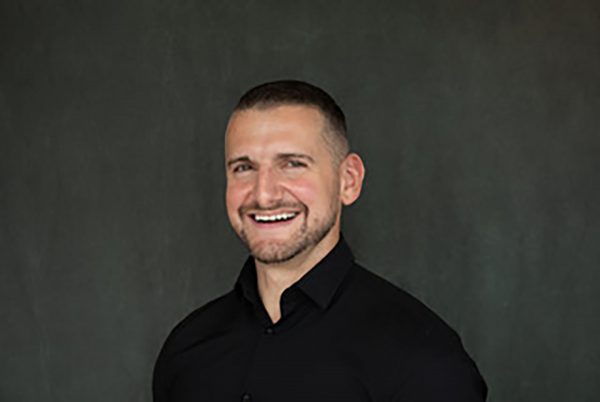
Congratulations also to Chord Bezerra who is returning to the U.S. Pharmacopeia as Senior Design Manager. Upon accepting the position he said, “Returning to U.S. Pharmacopeia as Senior Design Manager feels like coming home to a mission I care deeply about — using design to make complex science clearer, more human, and more accessible to the people it serves.”
Bezerra has more than 20 years of experience in design leadership and management. He has most recently been manager, Brand and Advertising, CareFirst Blue Cross Blue Shield. Prior to that he was Senior Lead Designer (contractor) CareFirst Blue Cross Blue Shield. His initial stint with Pharmacopeia in Rockville, Md., was as a senior graphic designer. While there, he oversaw award-winning design (2020 Hermes & Marcom Awards); mentored and directed junior designers; and fostered visual storytelling solutions by directing junior designers for two years. He has served as chair and founding member of eQuality Alliance, USP’s first LGBTQIA+ Affinity Group.
Bezerra had his own company for many years, Chord Bezerra Creative in D.C. Clients included national and non-profit organizations such as American Association for the Study of Liver Diseases, The Limited, Columbia Business School, Victory Fund, Zengo Cycling, Capital Pride, and Andrew Christian, among others. He earned his bachelor’s degree in communications from the University of Delaware.
District of Columbia
New LGBTQ bar Rush set to debut
14th & U picks up a queer lounge, dance spot with a tech focus

(UPDATE: Rush owners told the Blade they have postponed the opening of the new bar to Nov. 28.)
The LGBTQ nightlife hotbed at 14th and U is about to get another member. Rush, a bar years in the making, is set to open its doors next week.
Filling the hole left by Lost Society, Rush will be a tech-forward, two-story bar featuring fully integrated light and sound to deliver “an immersive experience,” according to owner Jackson Mosley.
Mosley began conceptualizing such a bar back in 2017. His career linking tech and hospitality stretches even further back, beginning his career at LivingSocial and Uber. And even before that, he moonlighted at Town during his college years, where he developed a passion for drag and LGBTQ nightlife.
Rush is this manifestation of both tech and nightlife coming to fruition, but it hasn’t been without setbacks. Mosley originally planned to open farther east, on 9th and U streets, but received pushback from the building in which it was supposed to be housed. “It was the universe telling me it wasn’t the right spot,” he says. Earlier this year, coming across the Lost Society vacancy, Mosley finally found his host. As the center of LGBTQ nightlife has shifted to 14th Street – as reinforced by this week’s Shakers shuttering – Mosley was eager to join the festive fray.
Rush is in the same building as Bunker, settling on the top two levels of the structure. Across a flexible, indoor-outdoor combination and 6.000 square feet, Rush entirely shakes up its two floors – “a real reimagining so that it feels entirely new,” he says, with new equipment and a new vision and a capacity of at least 300.
The lower floor leans into a lounge vibe. Relaxed seating and a huge bar dominate the area. It will feature a sound booth, furniture with built-in lighting, and plenty of places to chat.
Upstairs is the club, dance-forward space. It has a “proper drag stage,” Mosley says, one of the largest among fellow LGBTQ bars, at 7.5 feet deep by 22 feet wide. Set up for live performances and painted in matte black, this rooftop level can open the doors to the deck allowing the entire level to participate in performances.
Rush will also boast a full kitchen, distinct from many other LGBTQ bars. Set to start serving in a couple of months, it will serve a large menu of bar food and more, as well as a lively brunch on the rooftop.
“It’s long overdue to have a brunch with good food at a bar,” he says.
Mosley emphasizes sound and lighting as part of his tech focus. Dropping more than $150,000 on this multi-sensory experience, he realized his “life dream to build out a sound system I love,” he says. “Enough lighting to power Echostage,” he joked. Lasers, hazers, smoke machines, and CO2 cannons are just a few elements. “One piece lacking at a drag show has been integrated light and sound with the performers’ choreo,” he says, like when a queen performs a death drop, there should be a light and sound crescendo.
Rush also differentiates itself with its unique business model. All Rush employees are full-time exempt with benefits like healthcare and PTO. Mosley takes up the CEO position of his firm Momentux, which will operate Rush. Mosley envisions growth to open Rush locations in other cities along the same model. Patrons will swipe their credit cards at the door, reducing the number of swipes for bar staff (and reducing credit card fees), and wear wristbands to track purchases. The approach negates the need – and request – for tips. Service charges will only be levied when patrons don’t close their tabs. “I’m rethinking the role of staff, down to the barback,” he says.
As for what the staff will pour, Rush will slowly roll out an eclectic, cheeky signature cocktail list to be served beyond the usual vodka-sodas. Such drinks might include the “14th & Unhinged,” with tequila, mezcal, tamarind, and lime; the “Power Vers,” with gin, elderflower, lemon, and pink peppercorn foam; and the “Flight Attendant,” which comes with a spread based on the ever-popular in-flight cookie, Biscoff.
The bar’s opening is set for Friday, Nov. 28, with a promising lineup — popular DJ Sidekick, and a trio of local drag favorites: Cake Pop, Druex Sidora, and Mari Con Carne. A social media post promised “good energy, controlled chaos, and hot strangers.”
Rush, says Mosley, might be like “if Taylor Swift and Lady Gaga had a baby, plus drag queens,” he says.
Local
Most D.C.-area cities receive highest score in HRC Equality Index
‘Record breaking’ 132 jurisdictions nationwide receive top ranking
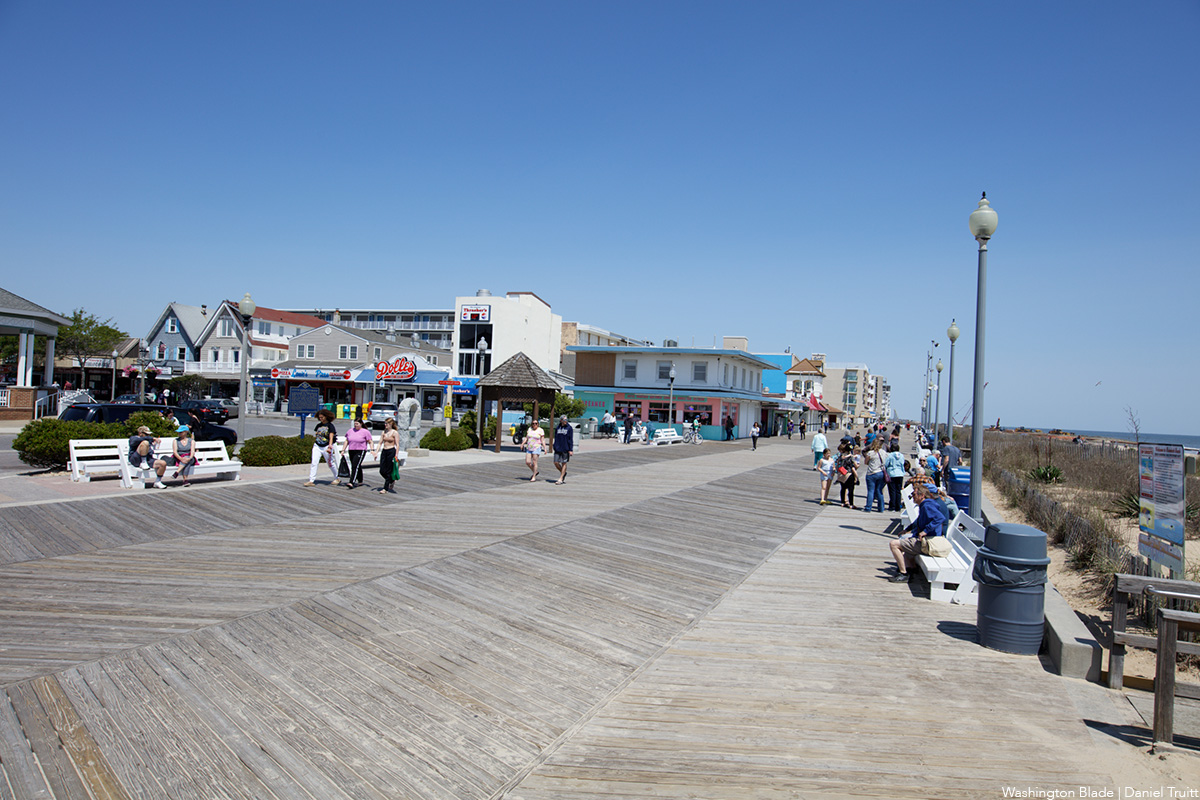
The Human Rights Campaign Foundation on Nov. 18 released its 14th annual Municipal Equality Index report showing that a record number of 132 cities across the country, including nine in Virginia and seven in Maryland, received the highest score of 100 for their level of support for LGBTQ equality through laws, policies, and services.
Among the D.C.-area cities and municipalities receiving a perfect score of 100 were Alexandria, Arlington County, Fairfax County in Virginia and College Park, Bowie, Gaithersburg and Rockville in Maryland.
The city of Rehoboth Beach is listed as the only city or municipality in Delaware to receive a score of 100. Rehoboth city officials released a statement hailing the high score as a major achievement over the previous year’s score of 61, saying the improvement came through a partnership with the local LGBTQ advocacy and services group CAMP Rehoboth.
The HRC Foundation, which serves as the educational arm of the Human Rights Campaign, the nation’s largest LGBTQ advocacy organization, includes the District of Columbia in a separate State Equality Index rating system under the premise that D.C. should be treated as a state and receive full statehood status.
In its 2024 State Equality Index report, D.C. and 21 states, including Maryland, Virginia, and Delaware, were placed in the “highest rated category” called Working Toward Innovative Equality, which does not use a numerical score.
“The 2025 MEI shows a record breaking 132 cities scoring the highest possible marks on the index, representing a combined population of approximately 49 million people,” the HRC Foundation said in a statement announcing the 2025 report.
“This high-water mark is critical as pressure continues from states that pass laws and policies that seek to shut transgender people – particularly trans youth – out of public life,” the statement continues. It adds that many cities that have put in place trans supportive laws and policies, including health insurance benefits, “are in many cases no longer able to provide that coverage in a meaningful way as a result of discriminatory decisions made by state legislatures.”
The statement goes on to say, “However, more cities than ever are doing what the MEI characterizes as ‘testing the limits of restrictive state laws’ – pushing back against various checks on municipal power or discriminatory state laws – with nearly 70 cities doing so.”
The HRC statement notes that this year’s Municipal Equality Index rated a total of 506 cities. It says that number includes the 50 state capitals, the 200 largest cities in the U.S., the five largest cities or municipalities in each state, the cities that are home to the state’s two largest universities, and the 75 cities or municipalities that have high proportions of same-sex couples.
The report shows this year’s index rated 11 cities or municipalities in Virginia with the following rating scores: Alexandria, 100; Arlington County,100; Fairfax County, 100, Richmond, 100; Charlottesville, 100; Chesapeake, 80; Hampton, 100; Newport News, 100; Norfolk, 91, Roanoke, 100, and Virginia Beach, 100.
In Maryland a total of 10 cities were rated: Annapolis, 100; Baltimore, 100; Bowie, 68; College Park, 100; Columbia, 100; Frederick, 100; Gaithersburg, 100; Hagerstown, 75; Rockville, 100 and Towson in Baltimore County, 85.
A total of eight cities were rated in Delaware: Rehoboth Beach, 100; Bethany Beach, 51; Milford, 83; Dover, 69; Wilmington, 76; Newark, 72; Smyrna, 59; and Middletown, 64.
The full 2025 HRC Foundation Equality Index Report can be accessed at hrc.org.
-

 District of Columbia4 days ago
District of Columbia4 days agoD.C. LGBTQ bars ‘hanging in there’ amid tough economy
-

 District of Columbia2 days ago
District of Columbia2 days agoNew LGBTQ bar Rush set to debut
-

 National4 days ago
National4 days ago213 House members ask Speaker Johnson to condemn anti-trans rhetoric
-

 Chile5 days ago
Chile5 days agoChilean presidential election outcome to determine future of LGBTQ rights in country

